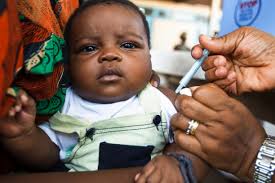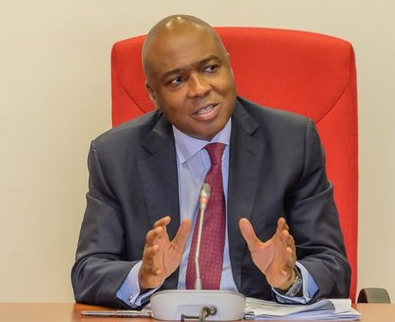The Global Alliance for Vaccine and Immunisation (GAVI) on Thursday said no fewer than 800,000 unvaccinated children died in Nigeria in the last five years.
Seth Berkley, the Chief Executive Officer (CEO) of GAVI, made this known during a stakeholders meeting in Suleja, Niger.
GAVI is a public-private global health partnership committed to increasing access to immunisation through provision of vaccines across the globe.
Berkley who said a recent survey had revealed that Nigeria had only 30 per cent coverage of immunisation, added that the figure differed from what some health workers had always presented.
The CEO said that children unnecessarily died because they were not vaccinated, pointing out that his organisation was working hard to strengthen routine immunisation in the country.
He said that lack of children’s access to routine vaccination caused outbreak of diseases such as monkey-pox, Lassa fever, measles, meningitis and yellow fever.
According to him, government and other stakeholders must work hand-in-hand to accelerate and strengthen routine immunisation.
Berkley noted that traditional ruler could help in ensuring children access to vaccination because they were close to the people.
The chief executive officer of GAVI decried non-usage of vaccine being provided by his organisation for immunisation in some quarters.
“If we supply vaccines and people do not go to the health centres to take them, the essence of providing such will be defeated,” he said.
Faisal Shuaib the, Executive Director, National Primary Health Care Development Agency, said it was imperative for the country to do the right thing and ensure all her children were immunised.
Shuaib said that how well leaders provided health care to their people determined the future of the children in such communities.
He tasked local governments and traditional rulers to supervise and monitor the activities of primary health care facilities in their areas.
The executive director disclosed that his agency had designed a template to monitor and evaluate immunisation quarterly to ensure improvement on current situation.
Reacting, the Emir of Suleja, Muhammad-Awwal Ibrahim, pledged the commitment of traditional rulers in the state to tackle the challenges facing vaccination of children.
Mr. Ibrahim said that immunisation must be taken seriously to prevent children from dying unnecessarily.
“We, the traditional rulers have the passion to do what is expected of us to tackle our health challenges,” he said.
“Advocating for improved access to care for women is critical to maintain the health of families, communities and populations.”




